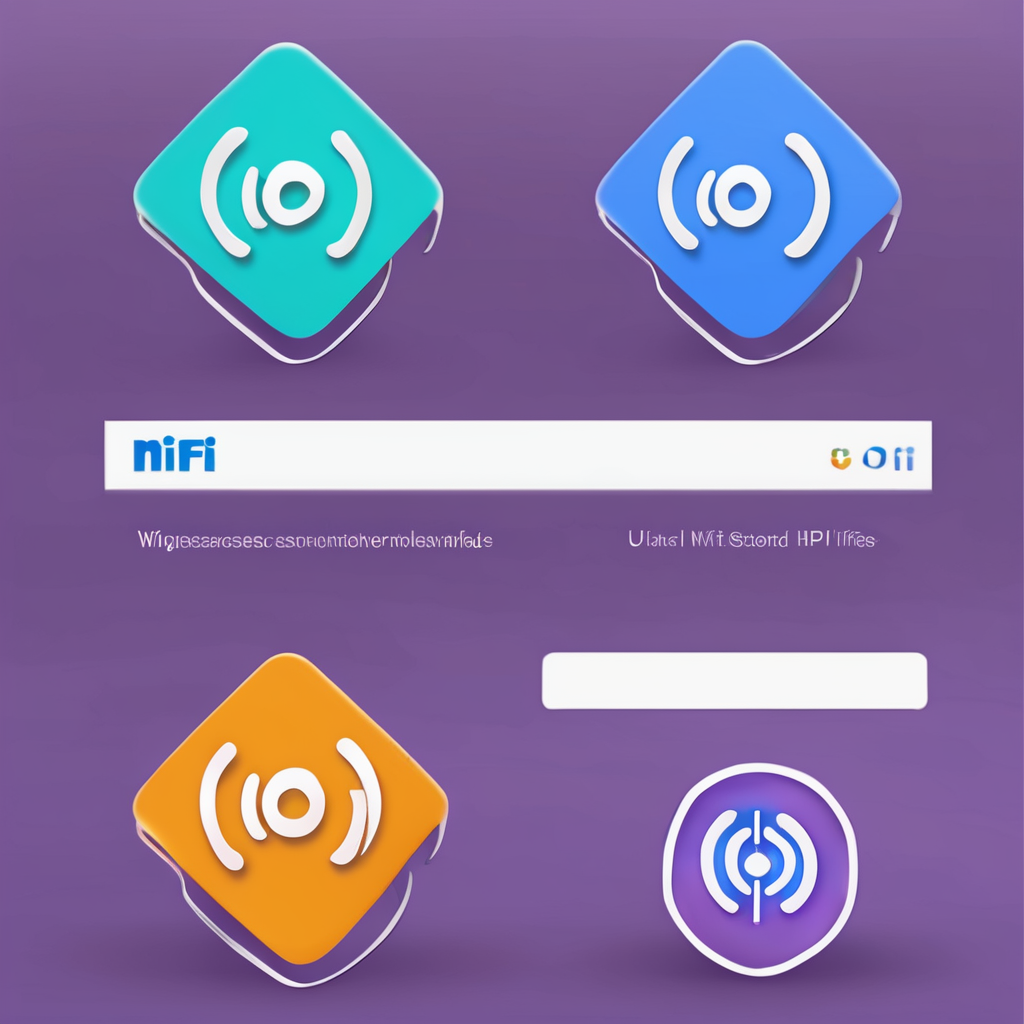Overview of Recent UK Computing Hardware Innovations
Recent breakthroughs in UK computing hardware reveal significant progress in technology innovation and emerging tech UK. A primary focus has been on developing specialized AI processors designed to enhance machine learning capabilities while minimizing energy consumption. These processors elevate the UK’s position in global AI research and practical applications.
Additionally, the expansion of Internet of Things (IoT) devices represents a cornerstone of innovation. UK-based companies have engineered sophisticated IoT hardware that integrates seamlessly across various sectors, including smart homes, healthcare, and industrial automation. This connectivity not only advances convenience but also boosts productivity and data-driven decision-making.
In the same genre : How are advancements in UK computing hardware influencing cloud computing?
Prominent UK technology firms play a crucial role in propelling this innovation forward. They invest heavily in research and development, fostering ecosystems that support startups and established businesses alike. Their collaborative efforts drive the creation of cutting-edge hardware solutions that respond directly to evolving market demands. Together, these developments emphasize the UK’s commitment to maintaining a competitive edge in the global technology landscape.
Enhancing Daily Convenience and Efficiency
Small
Smart home UK technology brings tangible improvements to daily life technology. UK households increasingly adopt smart home devices such as intelligent thermostats, voice-controlled assistants, and automated lighting. These innovations streamline routines, offering convenience while reducing energy use. For example, a smart thermostat adjusts heating based on occupancy patterns, enhancing comfort and cutting costs.
Have you seen this : What are the challenges in scaling UK computing hardware for global markets?
Advanced UK computing hardware boosts processing power in home devices. This leads to faster response times, smoother integration, and multi-device coordination. Automated systems enable seamless control of entertainment, security, and household chores, saving valuable time.
Computing convenience extends beyond individual devices. Integration across platforms means users can manage their home environment from smartphones or tablets, irrespective of location. UK developers focus on creating interoperable systems that prioritize user experience.
As smart home UK solutions become more accessible, everyday routines transform. Tasks once requiring manual effort are now automated, reducing friction and increasing efficiency. This intersection of daily life technology and emerging tech UK reflects a shift towards smarter living spaces that adapt intuitively to occupant needs.
Improving Connectivity and Communication
Enhancing connectivity hardware UK is a cornerstone of the country’s tech advancements. The integration of IoT devices across homes and public spaces is rapidly expanding, creating a more interconnected environment. These devices rely on cutting-edge communication technology that ensures seamless, reliable digital connections. For example, smart sensors embedded in urban settings collect and transmit data to optimize traffic flow and public safety.
What makes these developments crucial? They enable real-time interactions and intuitive controls, improving daily experiences for families, remote workers, and communities. Remote workers benefit from robust networking hardware that supports video conferencing and cloud computing without lag or interruption. Families can control home devices remotely, enhancing security and convenience through centralized management apps.
Moreover, UK companies focus on creating scalable connectivity hardware UK solutions that adapt to varying network demands. This adaptability means users experience consistent performance regardless of device load. Such advancements drive not only convenience but also foster an ecosystem ripe for further technology innovation and sustained growth in emerging tech UK sectors.
Advancements in Health and Wellbeing
Small
UK computing hardware has driven significant strides in health technology UK, particularly through innovative wearable devices. These gadgets monitor vital signs continuously, offering real-time feedback on heart rate, sleep quality, and activity levels. This capability empowers users to take proactive control of their health outside clinical settings.
Medical computing hardware UK advances include remote monitoring systems that transmit patient data to healthcare providers securely and instantly. This reduces hospital visits and enables early intervention for chronic conditions. For instance, devices embedded with sensors track glucose levels or cardiac rhythms, alerting clinicians to anomalies promptly.
Such health technology UK developments rely heavily on seamless integration between wearables and medical-grade hardware, ensuring accuracy and reliability. The UK’s leadership in this domain stems from close collaboration between tech companies and the healthcare sector, fostering tailored solutions.
People experience greater convenience and improved outcomes through these innovations. The widespread adoption of wearable devices and medical computing hardware UK reflects a broader trend toward personalized, data-driven healthcare, reinforcing the UK’s commitment to advancing wellbeing with technology.
Supporting Education and Learning
Small
The rise of education technology UK has transformed classrooms with advanced EdTech hardware that promotes interactive and engaging learning. Schools across the UK increasingly utilize digital whiteboards, tablets, and VR headsets, making lessons more dynamic and accessible. This hardware supports digital learning tools that cater to diverse learning styles and needs.
How does this impact students and educators? Digital tools enable personalized learning paths, helping students progress at their own pace while giving teachers real-time insights to adjust instruction. Accessibility features embedded in EdTech hardware ensure inclusive education for pupils with disabilities, bridging traditional gaps.
Moreover, UK innovators focus on developing portable, affordable devices that extend digital classrooms beyond school walls. Students benefit from seamless transitions between in-person and remote learning, a critical need highlighted during recent disruptions.
The continued evolution of education technology UK indicates a future where technology and pedagogy closely align, enriching the learning environment. This growth fosters opportunities for lifelong learning and skill development, essential for adapting to a fast-changing digital world.
Supporting Education and Learning
Small
The rise of education technology UK is transforming classrooms with advanced EdTech hardware designed for interactive and hybrid learning environments. UK schools increasingly deploy digital learning tools such as smart boards, tablets, and VR systems that enhance engagement and adapt to diverse learning styles. But why is this shift crucial? These technologies enable real-time feedback and personalized instruction, improving student outcomes across age groups.
Accessibility is a key benefit of emerging tech UK in education. Devices equipped with assistive features support students with disabilities, making learning more inclusive. For instance, screen readers and speech-to-text tools integrate seamlessly with standard hardware, removing traditional barriers.
UK developers focus on hardware that supports connectivity and collaboration, vital for blended learning models. Enhanced durability and user-friendly interfaces ensure technology fits diverse classroom needs. By embedding innovation in education technology UK, the sector prepares students for a digital future while addressing current challenges in engagement and accessibility. This alignment of education and technology highlights the UK’s commitment to fostering lifelong learning through smart, practical hardware solutions.
Future Potential and Societal Impact
Small
The trajectory of future computing trends UK reflects an exciting blend of technology innovation and increased attention to social impact hardware. Emerging technology impact in the UK signals a shift toward sustainable, energy-efficient designs that address environmental concerns while enhancing performance. Such developments ensure long-term societal benefits by reducing carbon footprints without sacrificing computational power.
How will these innovations reshape daily life and work? The integration of adaptive systems backed by advanced UK computing hardware promises smarter cities, improved healthcare access, and more flexible workplaces. For example, next-generation processors will enable AI-driven solutions that optimize public transport and resource distribution, improving urban living conditions.
Moreover, this evolving landscape encourages equitable growth by making technology more accessible across various demographics. Initiatives focused on affordable hardware aim to bridge digital divides, ensuring wider participation in the digital economy. UK companies lead in embedding ethical considerations into design, reflecting a commitment to societal wellbeing alongside technological progress.
In essence, the emerging tech UK sector is poised to create durable, impactful innovations that support a connected, inclusive, and sustainable future.




